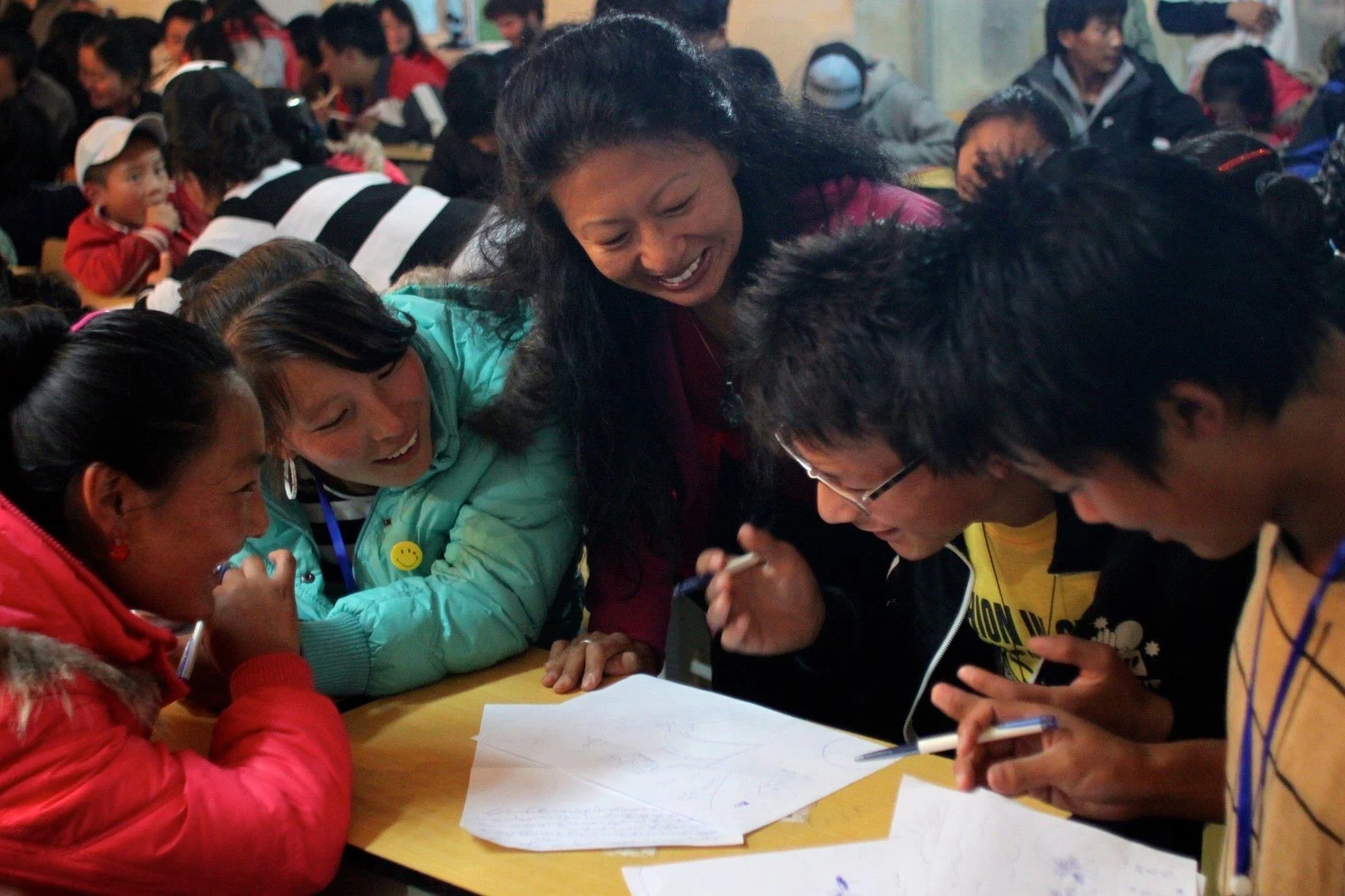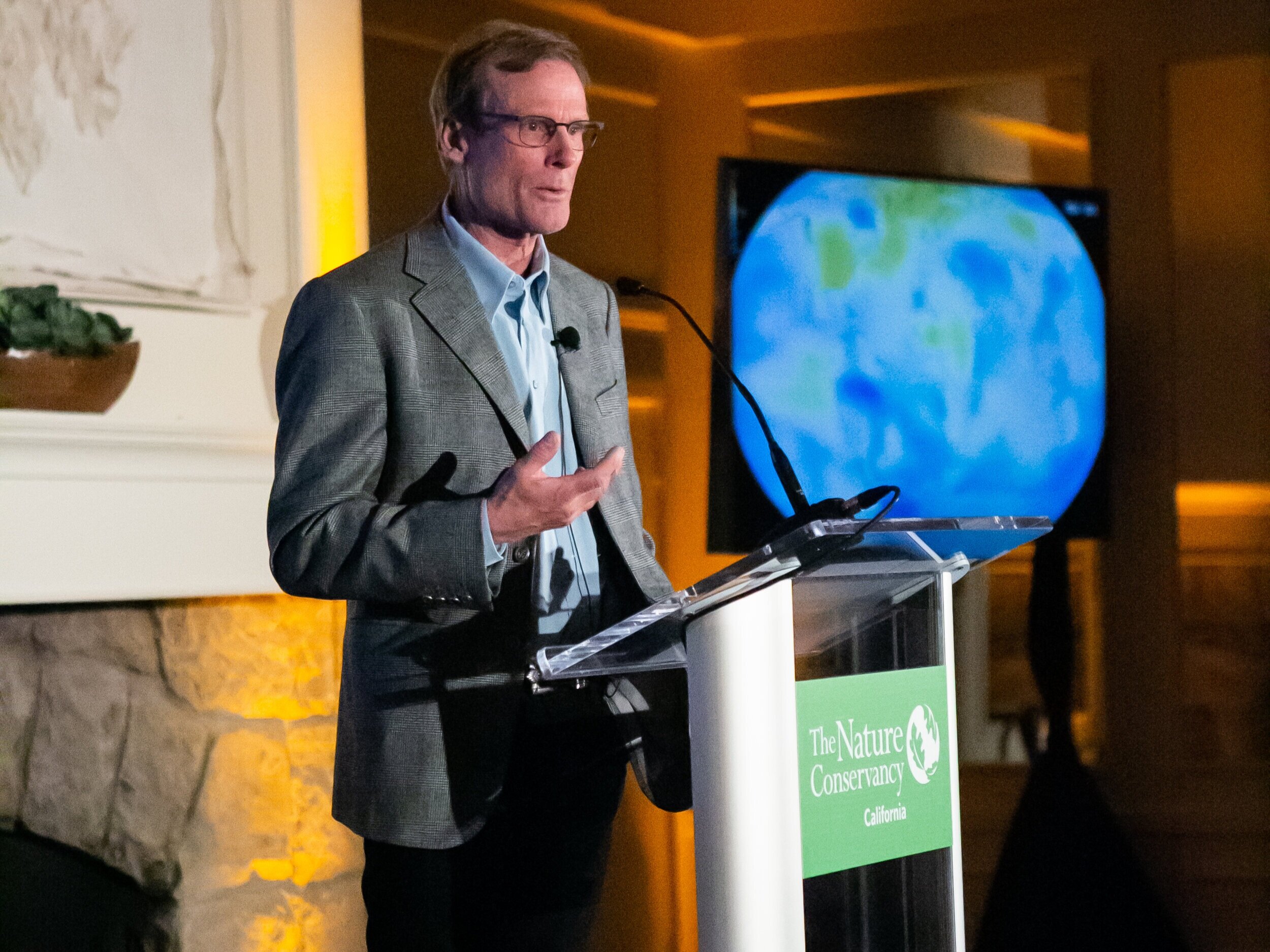Losang Rabgey Presents at The World Bank Forum on Understanding Risk
/Dr. Losang Rabgey, who presented recently at The World Bank’s International Forum on Understanding Risk, developed the non-profit, Machik, with her sister, Dr. Tashi Rabgey, and her parents. Their first task—to build a school for children in a village in eastern Tibet where their father was born. Here, Dr. Rabgey joins attendees of their Summer Enrichment Program which engaged young students from across Tibet in innovative learning activities.
By Rebecca Martin
Photos: Machik Collection
In December 2020, The World Bank convened its 2020 Understanding Risk Global Forum, and Exploration Connections speaker Dr. Losang Rabgey delivered an enthusiastically-received plenary keynote address to an audience of 3,000 attendees on the advantages of managing risk through empathy-based decision-making.
While the biennial event was scheduled to take place in Singapore, due to the pandemic, the packed three-day forum quickly turned virtual, with thousands participating from across the globe. The Forum convenes experts globally to share best practices and innovation in disaster risk identification. It also has the goal of facilitating new partnerships and non-traditional interactions.
“Generally, there is a risk calculation tendency to focus on what can be lost from a zero-sum standpoint. But I would like to flip that equation and talk about what can be gained in terms of thinking about empathy and compassion when considering risk.”
Rabgey, who is the Executive Director of the non-profit, Machik—which she co-founded with her sister, Dr. Tashi Rabgey—spoke of her organization’s work on the ground in Tibet, which commenced with a school her family built with her parent’s savings in a remote mountain community called Chungba—where her father was born. The children who attend the school are largely from pastoralist and agricultural families, and were not receiving education prior to the founding of the Chungba School.
Today, while the school continues to thrive in eastern Tibet with some 800 students in attendance each year, Rabgey’s non-profit, Machik, now engages Tibetans and others interested in Tibetan culture and social innovation on a global scale. Their programming and aid activities reach the diaspora Tibetan community through a number of unique programs they developed in recent years.
Dr. Rabgey framed the core concepts of her keynote speech in the following statement:
”I believe we need to take pause to reflect on our decision-making around risk. Generally, there is a risk calculation tendency to focus on what can be lost from a zero-sum standpoint. But I would like to flip that equation and talk about what can be gained in terms of thinking about empathy and compassion when considering risk.”
Understanding Risk organizers Simone Balog-Way and Emma Phillips referred to Dr. Rabgey’s presentation as a “wonderful and inspiring contribution to the event,” emphasizing their appreciation of Rabgey’s unique focus on the importance of incorporating empathy in the process of decision-making.
Noted Rabgey in her concluding remarks: “I think now more than ever we need to understand, imagine and dare to think of risk in new ways, and to place empathy and compassion at the center of the risk calculation.”
To learn more about Dr. Losang Rabgey and the work of Machik, you can go to Instagram and Facebook.
If you are interested in having Losang Rabgey present at an event, please contact us.
Rabgey and her family, through their small non-profit, Machik, built a school in eastern Tibet in the village of Chungba, which is nestled at 12,500 feet amidst verdant peaks and high pastures. Within six years, these rural children were rated at the top academically among hundreds of schools in the region. Many went on to high school, and then to higher education. Noted Rabgey in her talk, it was her family’s willingness to take a risk that was born of empathy that ultimately provided life-changing opportunities for these youth. Their risk produced incalculable results that have now changed the trajectory of the students’ lives and of the Chungba community as a whole.










